
Kribi - The Gem of Cameroon's Coastline
Nestled on Cameroon's southwestern coast, Kribi is a paradise for beach lovers and nature enthusiasts alike. Known for its pristine sandy beaches and crystal-clear waters, Kribi offers a serene escape from the hustle and bustle of city life. The town's laid-back atmosphere and welcoming locals make it an ideal destination for a relaxing getaway. One of Kribi's main attractions is the Chutes de la Lobé, a series of breathtaking waterfalls that cascade directly into the Atlantic Ocean. This unique natural wonder is perfect for a day trip, where you can enjoy a refreshing swim or a boat ride to get an up-close view of the falls. The surrounding area is also home to lush rainforests and an abundance of wildlife, making it a great spot for eco-tourism. Kribi is renowned for its fresh seafood, particularly the succulent prawns that are a local delicacy. The town's beachfront restaurants offer a variety of dishes that will tantalize your taste buds while you enjoy stunning ocean views. Don't miss the lively fish market, where you can watch fishermen bring in their daily catch and sample some of the freshest seafood you'll ever taste. For those interested in history and culture, Kribi has a rich heritage to explore. Visit the traditional fishing villages and learn about the local customs and way of life. You can also take a guided tour to the nearby pygmy villages, where you can gain insight into the unique traditions of one of Africa's indigenous peoples. With its perfect blend of natural beauty, delicious cuisine, and cultural experiences, Kribi is a must-visit destination in Cameroon.
Local tips in Kribi
- Visit Chutes de la Lobé early in the morning to avoid crowds and get the best light for photos.
- Bring cash, as many local businesses and markets do not accept credit cards.
- Try the grilled prawns at the beachfront restaurants; they are a local specialty.
- Hire a local guide for excursions to nearby pygmy villages for an enriching cultural experience.
- Pack insect repellent, especially if you plan to explore the rainforests.
Kribi - The Gem of Cameroon's Coastline
Nestled on Cameroon's southwestern coast, Kribi is a paradise for beach lovers and nature enthusiasts alike. Known for its pristine sandy beaches and crystal-clear waters, Kribi offers a serene escape from the hustle and bustle of city life. The town's laid-back atmosphere and welcoming locals make it an ideal destination for a relaxing getaway. One of Kribi's main attractions is the Chutes de la Lobé, a series of breathtaking waterfalls that cascade directly into the Atlantic Ocean. This unique natural wonder is perfect for a day trip, where you can enjoy a refreshing swim or a boat ride to get an up-close view of the falls. The surrounding area is also home to lush rainforests and an abundance of wildlife, making it a great spot for eco-tourism. Kribi is renowned for its fresh seafood, particularly the succulent prawns that are a local delicacy. The town's beachfront restaurants offer a variety of dishes that will tantalize your taste buds while you enjoy stunning ocean views. Don't miss the lively fish market, where you can watch fishermen bring in their daily catch and sample some of the freshest seafood you'll ever taste. For those interested in history and culture, Kribi has a rich heritage to explore. Visit the traditional fishing villages and learn about the local customs and way of life. You can also take a guided tour to the nearby pygmy villages, where you can gain insight into the unique traditions of one of Africa's indigenous peoples. With its perfect blend of natural beauty, delicious cuisine, and cultural experiences, Kribi is a must-visit destination in Cameroon.
When is the best time to go to Kribi?
Iconic landmarks you can’t miss
Le Plaisir du Gout
Experience authentic Cameroonian flavors with Mediterranean cuisine at this Kribi beachfront restaurant. Fresh seafood, wood-fired pizza, and ocean views await!
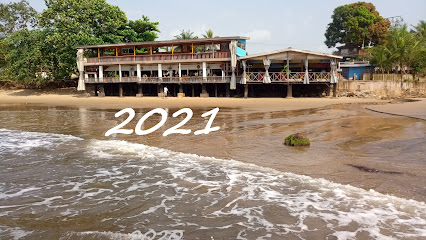
Hôtel du Phare
Enjoy a beachfront stay at Hôtel du Phare in Kribi, Cameroon, with comfortable accommodations and easy access to local attractions and stunning beaches.
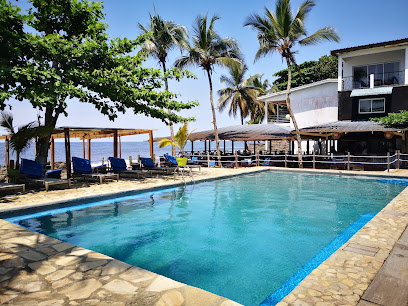
Restaurant Chez Fadil - Kribi
Enjoy local and international flavors at Restaurant Chez Fadil in Kribi, Cameroon - a delightful and affordable dining experience.
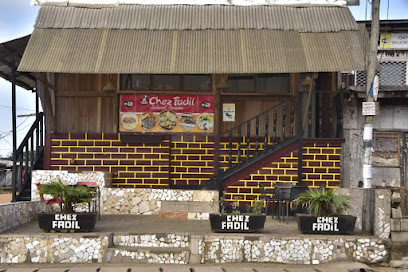
carrefour kingué
Experience the vibrant culture of Kribi at Carrefour Kingué: a bustling marketplace with local crafts, fresh produce, and Cameroonian flavors.

Le Debarcadère
Savor fresh seafood and authentic Cameroonian flavors at Le Debarcadère, Kribi – a coastal dining experience with stunning ocean views.
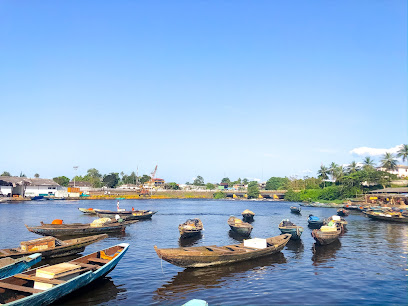
Public Beach Kribi
Experience the golden sands and vibrant culture of Kribi's Public Beach, a Cameroonian coastal paradise.
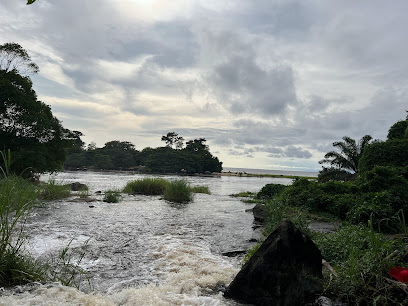
Le Phare De Kribi
Explore the historic Kribi Lighthouse, offering breathtaking ocean views and a glimpse into Cameroon's maritime heritage and coastal charm.
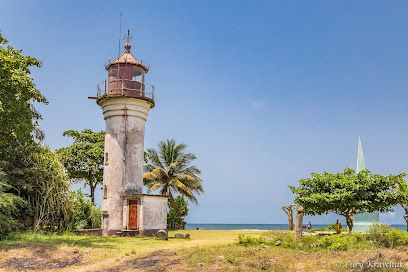
Londji Beach
Discover Londji Beach: a serene Cameroonian coastal gem offering golden sands, cultural experiences, and tranquil escapes.
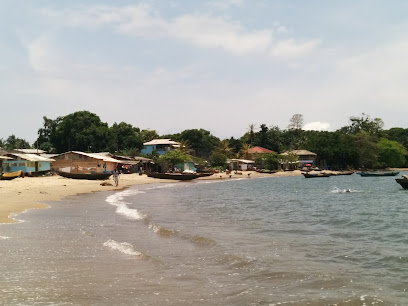
Kribi beach
Discover Kribi Beach: Golden sands, clear waters, and cultural richness await on Cameroon's stunning coastline. A perfect tropical escape.
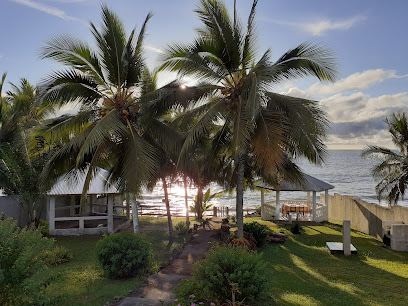
Cathédrale Saint-Joseph
Explore Kribi's Cathédrale Saint-Joseph: a historic landmark showcasing colonial architecture and religious heritage since the 19th century.
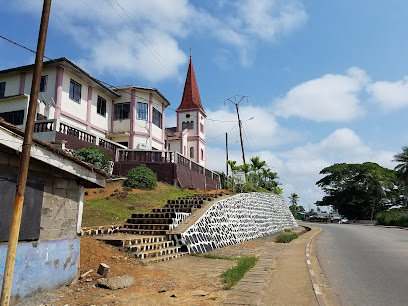
Plage kribi
Experience the tranquil beauty of Plage Kribi, Cameroon's premier beach destination, where relaxation meets adventure along stunning shores.
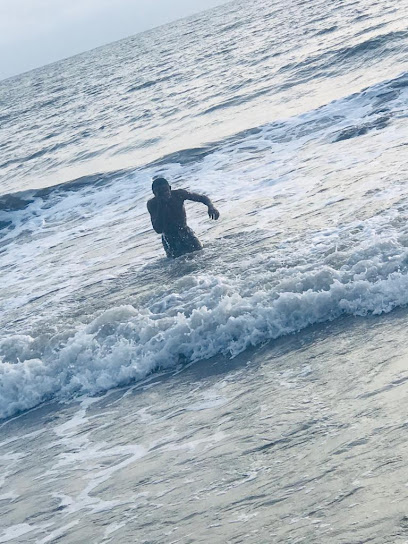
Kribi Cameroun
Discover Kribi, Cameroon: Pristine beaches, stunning waterfalls, and rich culture await on the Gulf of Guinea.

Kribi Lighthouse
Explore Kribi Lighthouse: a historic beacon offering coastal views and a glimpse into Cameroon's colonial past.
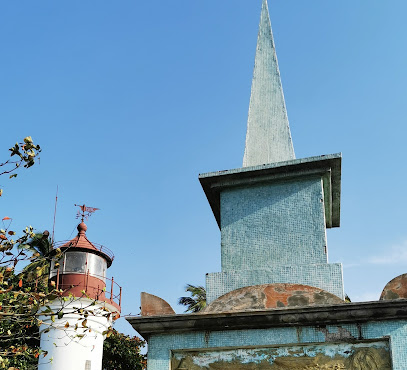
Unmissable attractions to see
Chutes de la LOBE
Explore the breathtaking Chutes de la LOBE, a stunning waterfall in Cameroon, surrounded by lush landscapes and adventure opportunities.
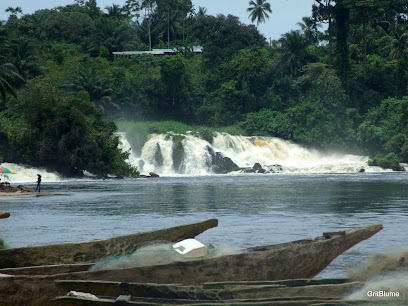
carrefour kingué
Experience the vibrant culture and stunning natural beauty of Carrefour Kinguého, a must-visit attraction in Kribi, Cameroon.

Le Phare De Kribi
Explore the historic Le Phare De Kribi, a captivating lighthouse offering breathtaking ocean views and a glimpse into Kribi's maritime heritage.
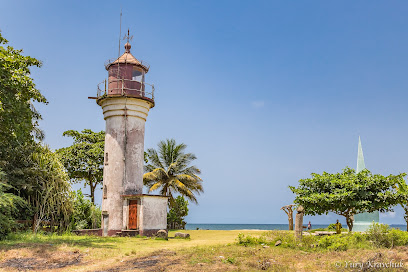
Ngoyè
Explore Ngoyè, a breathtaking tourist attraction in Kribi, Cameroon, where natural beauty meets local culture along the stunning Atlantic coastline.
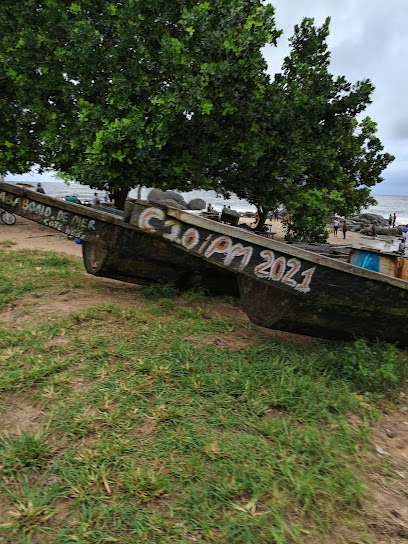
Mémorial batanga
Explore the Mémorial Batanga in Kribi, a cultural gem that celebrates the heritage of the Batanga people amidst stunning coastal scenery.
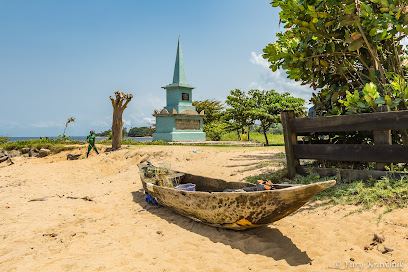
LONGJI plage
Experience the natural beauty and tranquility of LONGJI Plage in Kribi, Cameroon, perfect for relaxation, exploration, and local cuisine.
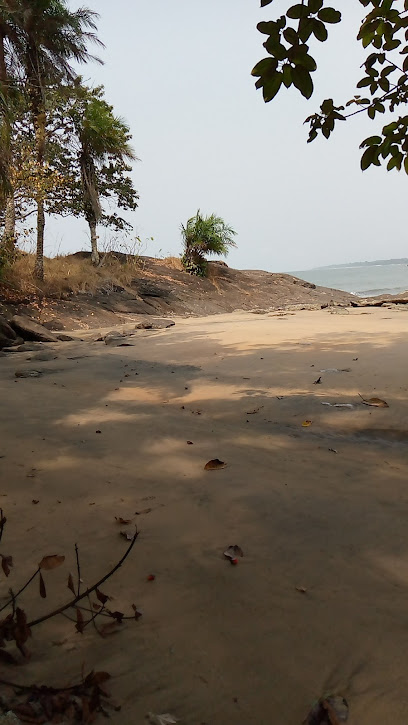
Plage kribi
Experience the pristine beauty of Plage Kribi, a tropical paradise on Cameroon’s coast, perfect for relaxation and adventure.
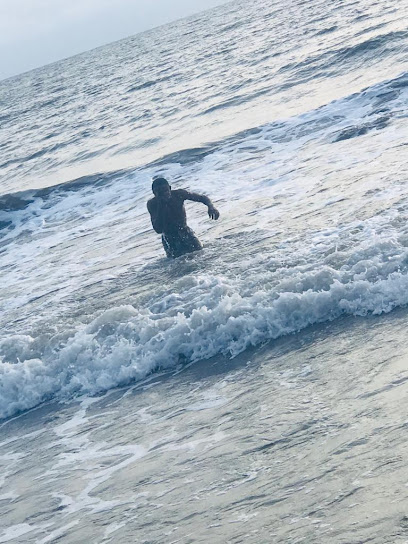
Rivière Kobongwe, Kobongwe Kribi
Explore the serene beauty of Riviere Kobongwe in Kribi, a tranquil retreat embraced by nature's finest landscapes.

tropical La côte Garden
Discover the tranquil beauty of Tropical La Côte Garden in Kribi, Cameroon, a lush paradise perfect for nature lovers and tranquil escapes.

Rivière Kienke, Kribi
Explore Riviere Kienke in Kribi: A serene escape blending river views, lush landscapes, and local culture on Cameroon’s stunning coastline.
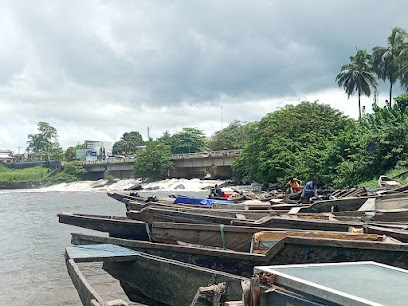
Ferme bibiche
Explore the serene beauty of Ferme Bibiche, a lush park in Kribi, perfect for relaxation, picnics, and nature walks amidst vibrant landscapes.

Lowenge, Lolabe 3, Kribi, Cameroun
Experience the breathtaking beauty and rich cultural heritage of Lowenge, a must-visit tourist attraction in Kribi, Cameroon.

Face Tradex
Explore the vibrant atmosphere of Face Tradex in Kribi, a cultural hub filled with local crafts, fresh produce, and an authentic Cameroonian experience.

Mémorial BATANGA
Explore Mémorial BATANGA in Kribi, a vital cultural site reflecting Cameroon’s rich history and heritage amidst stunning coastal beauty.

Kribi Dream’s
Explore the beauty and culture of Kribi at Kribi Dream's - your gateway to adventure and relaxation on Cameroon’s stunning coastline.
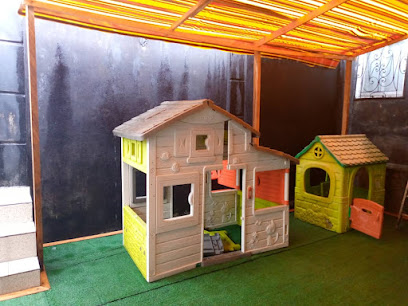
Essential places to dine
Le Plaisir du Gout
Experience authentic Cameroonian cuisine and delicious pizzas at Le Plaisir du Gout in beautiful Kribi.
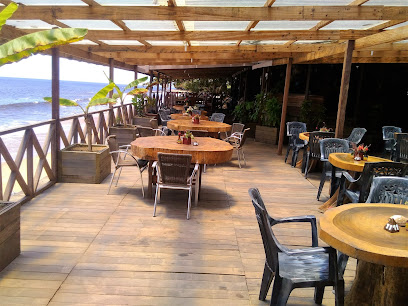
Restaurant Chez Fadil - Kribi
Discover delightful dining at Restaurant Chez Fadil in Kribi – where local flavors meet international favorites in a vibrant atmosphere.
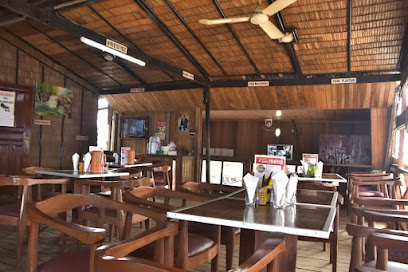
Le Debarcadère
Experience authentic Cameroonian cuisine with breathtaking ocean views at Le Debarcadère in Kribi.
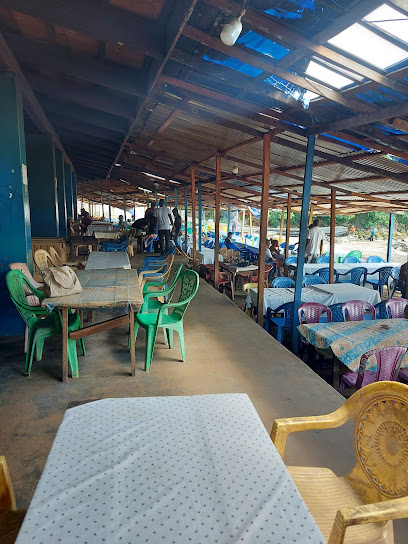
LE BUFFET BIO
Discover Le Buffet Bio in Kribi - A Culinary Oasis Offering Organic Delights Inspired by Cameroon's Rich Culture.
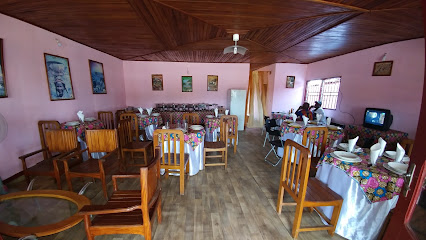
Pieds dans l'Eau
Experience exquisite seafood dining with breathtaking ocean views at Pieds dans l'Eau in Kribi.
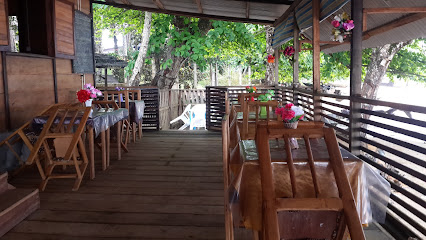
La terrasse de l’océan
Experience authentic Cameroonian cuisine with breathtaking ocean views at La Terrasse de l’Océan in Kribi.
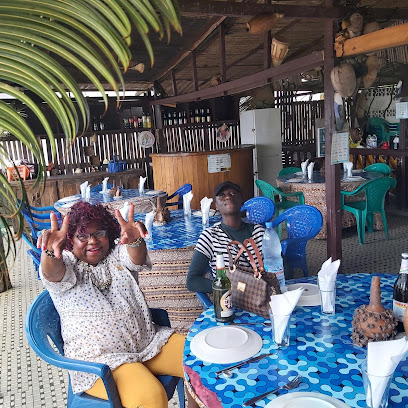
Restaurant Kitchen House
Experience the flavors of Kribi at Restaurant Kitchen House - where fresh seafood meets local hospitality in a charming coastal setting.
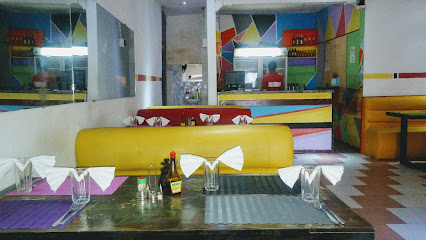
Restaurant Ebene Plus
Discover authentic Cameroonian flavors at Restaurant Ebene Plus in Kribi – where every meal tells a story.
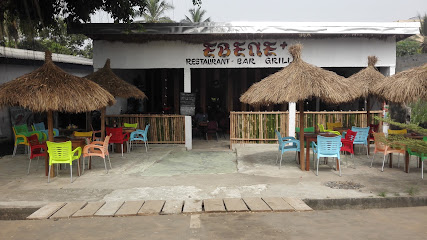
Le Tétraodon lounge
Discover exquisite local cuisine at Le Tétraodon Lounge in Kribi - where every dish tells a story.
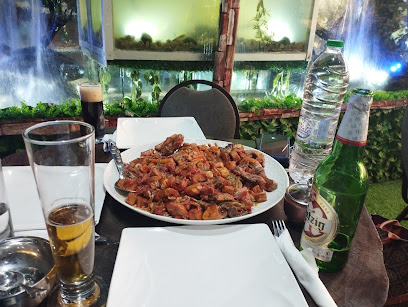
Le Soukala Plus Bar - Restaurant
Discover culinary delights at Le Soukala Plus Bar in Kribi - where local flavors meet international cuisine in a vibrant setting.
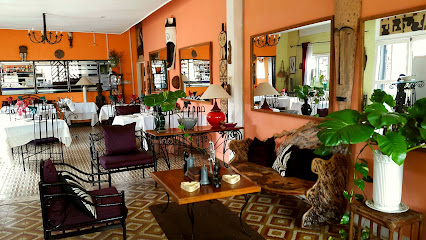
A La Cola De Kribi
Discover A La Cola De Kribi: Experience authentic Cameroonian cuisine in a picturesque setting by the sea.
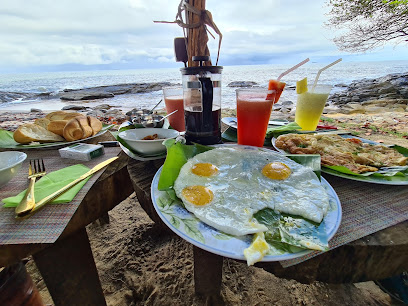
The Rooster
Experience delicious Western cuisine at The Rooster in Kribi—where culinary delights meet stunning coastal views.
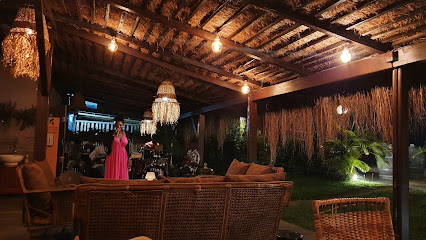
Massami Cafe Inter
Experience the flavors of Cameroon at Massami Cafe Inter - where local cuisine meets international flair amidst stunning coastal views.
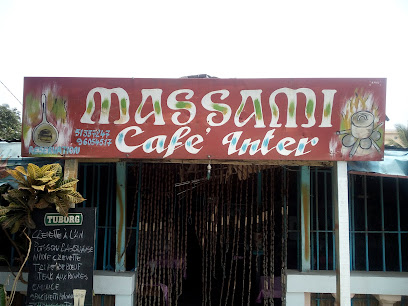
IDODO
Discover IDODO in Kribi: A culinary haven offering authentic Cameroonian cuisine with stunning seaside views.
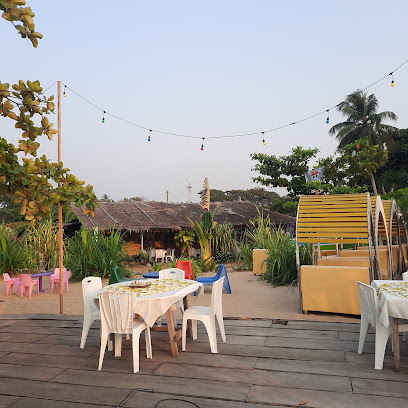
Restaurant Fouta
Experience authentic Cameroonian cuisine at Restaurant Fouta in Kribi – where every meal is a celebration of flavor by the sea.
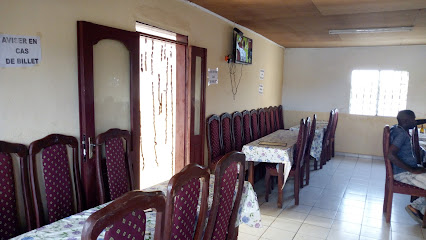
Markets, malls and hidden boutiques
SPAR Kribi
Explore the vibrant flavors of Kribi at SPAR Kribi, your local grocery store for fresh produce and local delicacies.
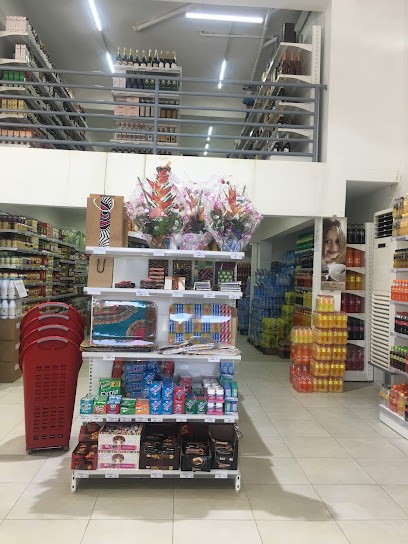
Pate Dor
Explore the colorful offerings of Pate Dor, a vibrant supermarket in Kribi, showcasing local flavors and essential goods.
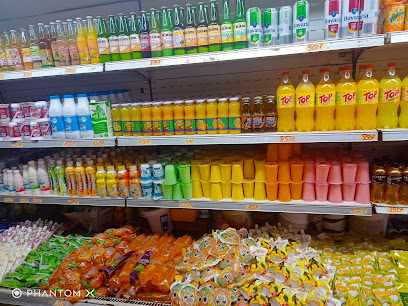
Ets Amis du monde
Discover local flavors and international products at Ets Amis du Monde, the premier supermarket in Kribi, Cameroon for all your shopping needs.
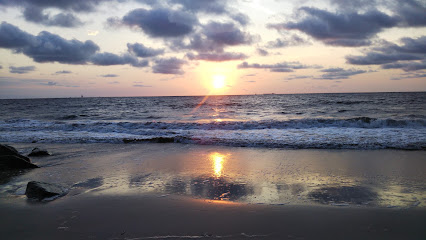
Aladji
Discover Aladji Supermarket in Kribi, where you can find a variety of local and international products to enhance your travel experience.
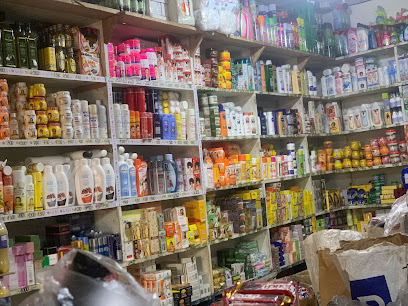
STE QUIFEROU Kribi
Discover STE QUIFEROU Kribi, a premier hardware store offering an extensive selection of tools and supplies for all your DIY and home improvement needs.
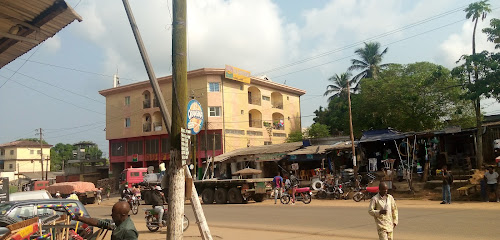
ecomerce kribi
Explore Ecomerce Kribi for a delightful shopping experience that blends local charm with modern retail offerings.
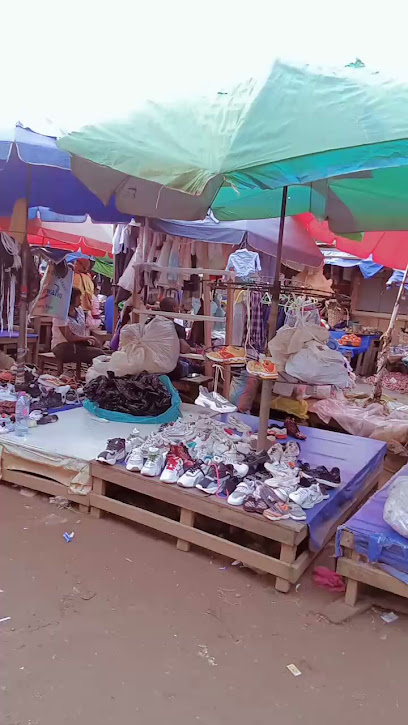
Christ Shopping
Explore Christ Shopping for unique clothing styles and local fashion that captures the spirit of your travel experience.
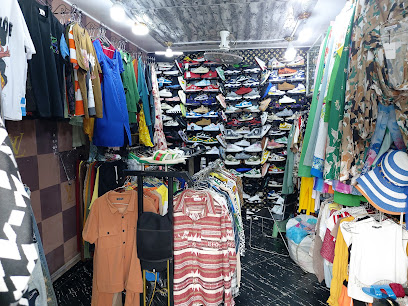
Hervé Télécom
Explore Hervé Télécom in Kribi for stylish fashion accessories that blend local culture with contemporary elegance, perfect for any traveler.

Brasseries du Cameroun
Experience the vibrant culture of Cameroon at Brasseries du Cameroun, where local products and authentic souvenirs await you in Kribi.

Adrien Immobilier Kribi
Explore the bustling Adrien Immobilier Kribi Shopping Mall in Cameroon for a unique blend of local culture, shopping, and delicious cuisine.
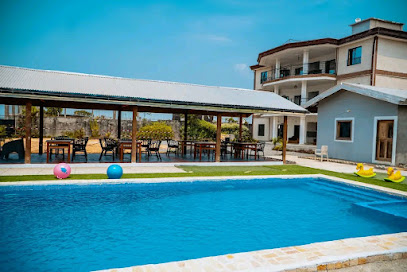
Boutique Orange NKOLBITENG
Discover Boutique Orange NKOLBITENG in Kribi - your go-to cell phone store for all mobile needs in the heart of Cameroon’s coastal paradise.
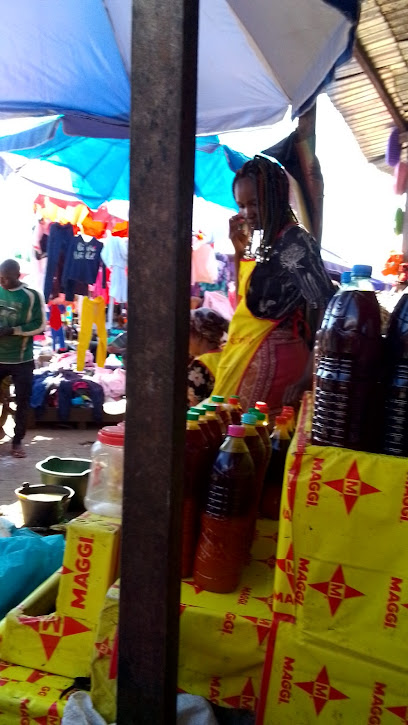
Menuseri De L'espoir
Explore Menuseri De L'espoir in Kribi for unique handmade treasures and a taste of local craftsmanship, perfect for souvenirs.
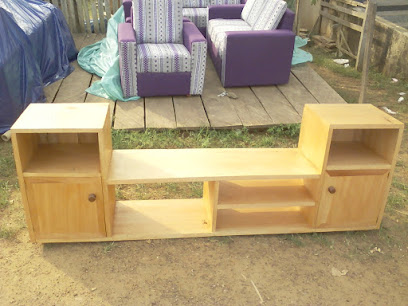
Ets KELLER
Discover the vibrant shopping experience at Ets KELLER, Kribi's premier mall with a mix of local charm and international flair.

Papeterie martial
Explore Papeterie Martial in Kribi for a delightful selection of stationery and unique local gifts, perfect for tourists and locals alike.

Boutique Meganell
Explore unique fashion and local craftsmanship at Boutique Meganell, a must-visit clothing store in the heart of Kribi, Cameroon.

Essential bars & hidden hideouts
Instagram kribi
Experience the lively nightlife at Instagram Kribi, a must-visit bar in the heart of Kribi, perfect for socializing and enjoying stunning coastal views.
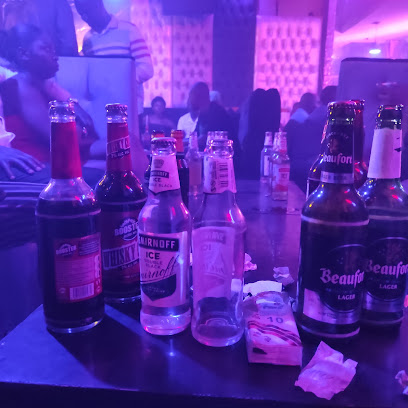
Echo Snack
Experience the vibrant atmosphere of Echo Snack in Kribi, where locals and tourists gather for refreshing drinks and unforgettable moments.
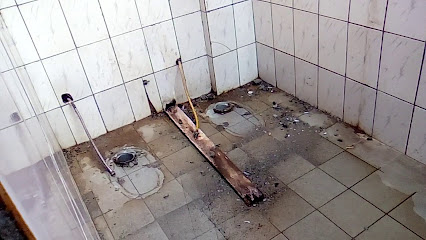
QG chez Mbombo
Discover the lively ambiance of QG chez Mbombo, the ultimate bar experience in Kribi, with refreshing drinks and local culture.
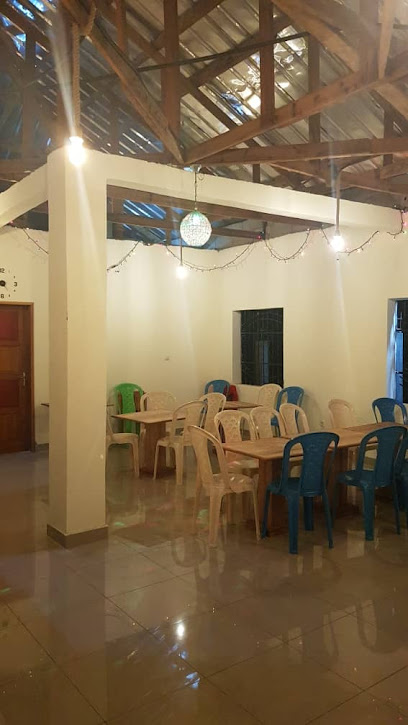
Le Kilimandjaro
Experience the vibrant nightlife at Le Kilimandjaro, a lively bar in Kribi, offering a perfect blend of refreshing drinks and a friendly atmosphere.
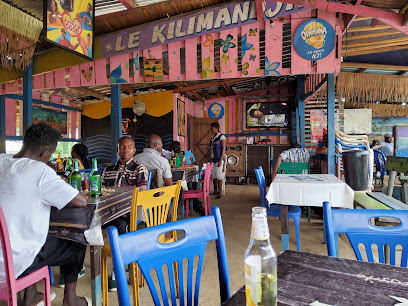
Forestier Bar
Discover the vibrant atmosphere and refreshing drinks at Forestier Bar, a must-visit spot in Kribi for an authentic local experience.
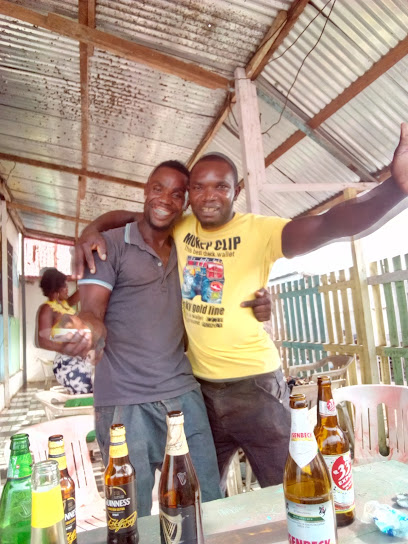
RESTAURANT BAR EBANDJEA
Savor the authentic taste of Africa at Restaurant Bar Ebandjea in Kribi, where vibrant flavors meet a lively atmosphere.
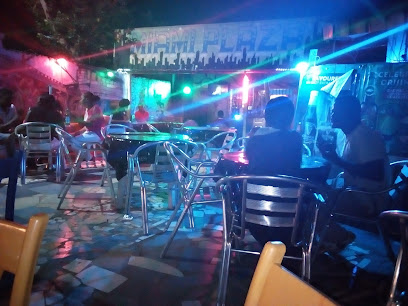
LATE NIGHT SHOW
Unwind and revel in the vibrant nightlife at Late Night Show, Kribi's ultimate bar destination for drinks, music, and good times.

Apatou Bar
Experience the vibrant atmosphere of Apatou Bar in Kribi, where refreshing drinks and local culture come together for an unforgettable night out.

Cave De Mk
Experience the vibrant atmosphere of Cave De Mk in Kribi, where local culture meets refreshing drinks in a welcoming bar environment.
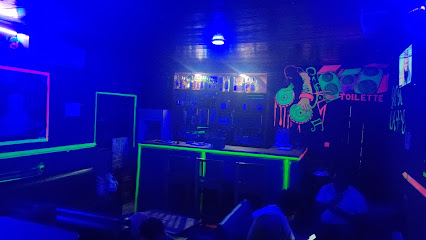
Container Bleu
Discover the vibrant atmosphere of Container Bleu in Kribi, where refreshing drinks and breathtaking ocean views await you.
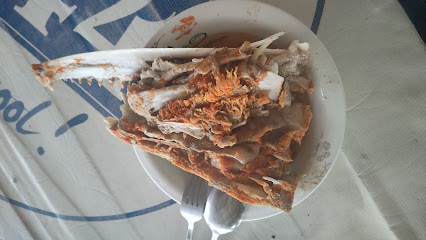
MAIN DANS LA MAIN BAR
Discover the vibrant nightlife of Kribi at MAIN DANS LA MAIN BAR, where refreshing drinks and a lively atmosphere await you.
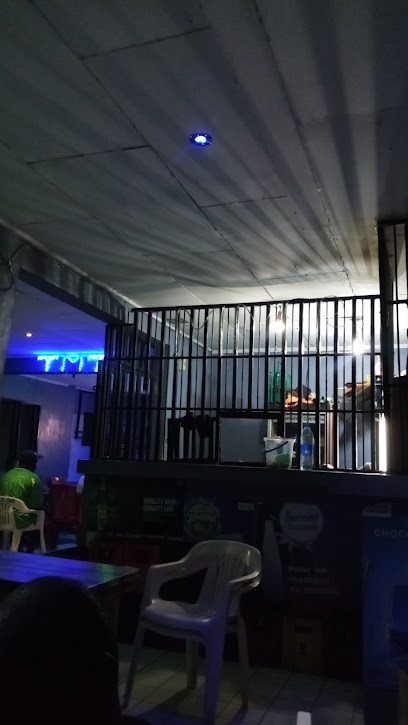
Fraternité Bar
Experience the lively ambiance of Fraternité Bar in Kribi, where refreshing drinks and local culture come together for an unforgettable night out.

Cozy loft kribi
Discover Cozy Loft Kribi, a charming bar that offers a relaxing atmosphere and delicious local drinks in the heart of Kribi's coastal beauty.
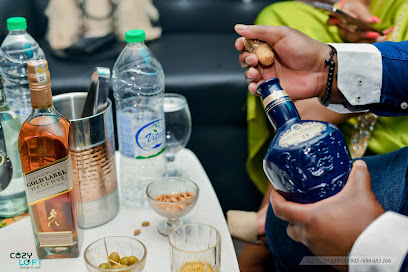
AMBASSADE DE L'OUEST CHEZ JEAN MOBIL BAR
Discover the vibrant nightlife at Ambassade de L'Ouest Chez Jean Mobil Bar in Kribi, where local flavors meet a lively atmosphere.

5/5
Experience the vibrant spirit of Kribi at this coastal bar, where refreshing drinks and stunning ocean views await every visitor.

Local Phrases
-
- HelloBekang
[Beh-kang] - GoodbyeBia
[Bee-ah] - YesEe
[Ee] - NoAyo
[Ah-yo] - Please/You're welcomeAbe
[Ah-bay] - Thank youNdolè
[Ndo-lay] - Excuse me/SorrySaa
[Sah] - How are you?Na ndolè?
[Nah ndo-lay] - Fine. And you?Ndolè. Na yé?
[Ndo-lay. Nah yeh] - Do you speak English?Na mè wulè English?
[Nah may woo-lay English] - I don't understandAya nji wum
[Ah-yah n-jee woom]
- HelloBekang
-
- I'd like to see the menu, pleaseA mè wo menu, bep
[Ah may woh menu, bep] - I don't eat meatA mè wo nyama
[Ah may woh nyah-mah] - Cheers!Achaa!
[Ah-cha] - I would like to pay, pleaseA mè wo kudè, bep
[Ah may woh koo-day, bep]
- I'd like to see the menu, pleaseA mè wo menu, bep
-
- Help!Njut!
[N-joot] - Go away!Wulo!
[Woo-lo] - Call the Police!Na mè wulè Police!
[Nah may woo-lay Police] - Call a doctor!Na mè wulè doctor!
[Nah may woo-lay doctor] - I'm lostAya nji nanga
[Ah-yah n-jee nahn-gah] - I'm illAya nji nyama
[Ah-yah n-jee nyah-mah]
- Help!Njut!
-
- I'd like to buy...A mè wo jang...
[Ah may woh jah-ng] - I'm just lookingA mè wo zong no
[Ah may woh zoh-ng no] - How much is it?A mè wo nyi?
[Ah may woh nyee?] - That's too expensiveIyo nyi wum
[Ee-yo nyee woom] - Can you lower the price?Na mè wulè nyi nyè?
[Nah may woo-lay nyee nyeh]
- I'd like to buy...A mè wo jang...
-
- What time is it?Nyì wé?
[N-yee way] - It's one o'clockNyì wé nyì
[N-yee way n-yee] - Half past (10)Nyì sèn (10)
[N-yee sen (10)] - MorningMàkɛm
[Ma-kem] - AfternoonMàsàm
[Ma-sahm] - EveningMàlá
[Ma-la] - YesterdayLálá
[La-la] - TodayNálá
[Na-la] - TomorrowMálá
[Ma-la] - 1Sɔm
[Sohm] - 2Nya
[Nyah] - 3Tàt
[Taat] - 4Nìn
[Neen] - 5Nàv
[Nahv] - 6Nyàlò
[Nya-loh] - 7Nàwà
[Nah-wah] - 8Nàhà
[Nah-hah] - 9Sɔm nìn
[Sohm neen] - 10Sɔm nya
[Sohm nyah]
- What time is it?Nyì wé?
-
- Where's a/the...?Yé (a/the)... wé?
[Yeh (a/the)... way] - What's the address?Nyì a-dress wé?
[N-yee a-dress way] - Can you show me (on the map)?Na mè wulè wé (na map)?
[Nah may woo-lay way (nah map)] - When's the next (bus)?Nyì tàm (bus) wé?
[N-yee taat (bus) way] - A ticket (to ....)Nyì ticket (to ....)
[N-yee ticket (to ....)]
- Where's a/the...?Yé (a/the)... wé?
History of Kribi
-
The history of Kribi begins with its original inhabitants, the Batanga and the Bassa tribes. These indigenous groups have lived in the region for centuries, thriving on fishing, hunting, and agriculture. Their rich cultural traditions, including music, dance, and folklore, laid the foundation for the unique cultural tapestry of Kribi.
-
In the late 15th century, Portuguese explorers were among the first Europeans to arrive on the coast of Kribi. However, it was the Germans who established a more significant presence in the late 19th century. Kribi became an important trading post under German colonial rule, facilitating the export of rubber, timber, and ivory. The town's architecture still bears marks of this colonial era, with structures like the German lighthouse standing as historical landmarks.
-
Kribi's history is also marked by the transatlantic slave trade. The town served as one of the ports where enslaved Africans were shipped to the Americas. The remnants of this dark period are visible in places like the 'Chutes de la Lobé,' where slaves were once transported. Today, these waterfalls are a poignant historical site, reminding visitors of the town's painful past.
-
With the end of German colonial rule after World War I, Kribi came under French administration. The town continued to develop, benefiting from infrastructure improvements and increased trade activity. When Cameroon gained independence in 1960, Kribi became a part of the newly sovereign nation, gradually transforming into a vibrant coastal town known for its beautiful beaches and rich cultural heritage.
-
In recent decades, Kribi has experienced significant growth, fueled by tourism and economic development. The town's pristine beaches, such as the popular Grand Batanga Beach, attract visitors from around the world. Ecotourism is also on the rise, with attractions like the Campo Ma’an National Park showcasing the region's diverse wildlife and natural beauty. Kribi's blend of history, culture, and natural allure makes it a must-visit destination in Cameroon.
Kribi Essentials
-
Kribi is located in the South Region of Cameroon. The nearest international airport is the Douala International Airport, approximately 150 kilometers away. From Douala, you can take a bus, taxi, or rent a car to reach Kribi. The journey by road typically takes around 3 to 4 hours, depending on traffic and road conditions. Alternatively, you can take a private shuttle service directly to Kribi, which is often more comfortable and faster.
-
Kribi is a relatively small town, and many of its attractions, including the beautiful beaches and the Lobe Waterfalls, are within walking distance. For longer trips, local taxis are readily available and relatively inexpensive. Moto-taxis (motorcycle taxis) are also a common and affordable means of transportation. If you prefer more control over your travel, renting a car can be a convenient option for exploring the surrounding areas at your own pace.
-
The official currency in Cameroon is the Central African CFA franc (XAF). Credit cards are accepted in some hotels, restaurants, and shops, but it is advisable to carry cash, especially in smaller establishments and rural areas. ATMs are available in Kribi, but it is wise to withdraw sufficient cash in Douala or Yaoundé before traveling to ensure you have enough funds.
-
Kribi is generally considered a safe destination for tourists. However, like any travel destination, it is advisable to take standard precautions. Avoid walking alone at night in unfamiliar areas and keep an eye on your belongings in crowded places. While Kribi does not have specific high-crime areas targeting tourists, it is always best to stay vigilant and aware of your surroundings.
-
In case of emergency, dial 112 for immediate assistance. The local police station and medical facilities are available in Kribi. It is recommended to have travel insurance that covers medical emergencies. For minor health issues, there are pharmacies in the town where you can purchase over-the-counter medications. The Kribi District Hospital is the primary healthcare facility in the area.
-
Fashion: Do dress modestly, especially when visiting religious sites or local communities. Avoid wearing revealing clothing. Religion: Do respect local customs and traditions. Public Transport: Do be respectful and courteous. Don't eat or drink on public transport. Greetings: Do greet people with a handshake or a friendly 'Bonjour.' Eating & Drinking: Do try local delicacies and accept food offerings graciously. Don't refuse hospitality, as it is considered impolite.
-
To experience Kribi like a local, visit the local markets where you can buy fresh seafood and traditional Cameroonian goods. Engage with locals, as they are often friendly and willing to share stories about the town's history and culture. Don’t miss visiting the Lobe Waterfalls, where the river falls directly into the Atlantic Ocean, a unique natural phenomenon. For a more authentic experience, consider taking a boat tour with local fishermen, who can show you hidden gems along the coastline.
Nearby Cities to Kribi
-
Things To Do in Edea
-
Things To Do in Douala
-
Things To Do in Ebolowa
-
Things To Do in Tiko
-
Things To Do in Limbe
-
Things To Do in Buea
-
Things To Do in Mbini
-
Things To Do in Malabo
-
Things To Do in Luba
-
Things To Do in Bitam
-
Things To Do in Yaoundé
-
Things To Do in Nkongsamba
-
Things To Do in Bafia
-
Things To Do in Dschang
-
Things To Do in Calabar






